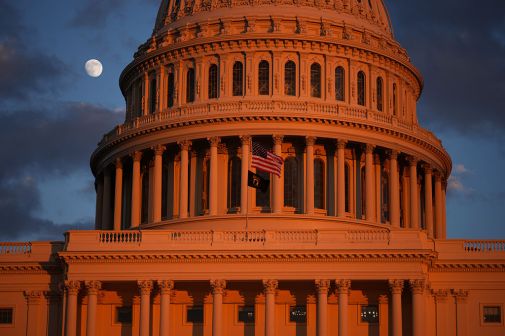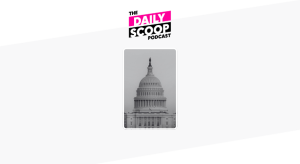Obama ‘data cabinet’ says close relationship with agency CIOs is crucial

While the role of federal CIOs has become more clearly defined through legislation in everything from expected duties to the reporting chain, the effort to define the job of chief data officer is still in its infancy.
But the Obama administration’s “data cabinet” — a group established by U.S. Chief Data Scientist DJ Patil to bring the hundreds of data practitioners in government together — has been figuring out the commonalities of those data-focused jobs, and eventually they would like to clarify what their roles in government should be, an official at the General Services Administration said Tuesday.
So far, they generally agree on one thing, GSA Chief Data Officer Kris Rowley said Tuesday in Washington at the ATARC Federal Big Data Summit.
“One common theme that we’re hearing about … within the [chief data officer] community, is that if you do work for the [chief information officer] or you don’t work for the CIO, to be successful you have to have a really good relationship with the CIO,” Rowley said. “You have to be able to have a mutual, respectful relationship to make sure that you partner with each other.”
Several chief data officers report to their CIO, “but that’s not consistent,” he said, in government or the private sector.
“What we’re not doing, at least initially, is we’re not talking about where a chief data officer lives, what organization they work for or whom they work for,” Rowley said of the data cabinet.
Those decisions, from both the group’s initial perspective and Rowley’s own, are “best left up to the agency,” he said.
But the Federal IT Acquisition Reform Act is leading to a centralization of data management resources with the CIO, Rowley said.
“So having that structured, positive relationship with the chief information officer is really critical in the federal community to make sure that we’re complying with the letter of the intent of the law of FITARA, and also maximizing the resources that are available around data management activities,” Rowley said.
Yet the cabinet still doesn’t have a conclusive grasp of the exact role data officers and scientists in government should fulfill. It’s still trying to address questions such as what sort of skill set a data scientist might need, or what a CDO or chief data scientist should do.
“What we’re trying to do is figure out is what are all of the things that we do that are similar? What are different and unique?” Rowley said. “And in the future — we’re not quite there yet — what should a chief data officer do in federal government? Where should their focus be, where should their priority be? How should they partner with other C-suite organizations?”
That progress, though, could be in question as all turn their eyes to President-elect Donald Trump’s transition efforts. But Patil, the data cabinet’s founder, noted recently in an interview with FedScoop, when asked how to make the administration’s gains in technology and data stick, that in particular this cabinet gives him “hope.”
[Read more: Obama’s biggest achievement in tech? Getting nerds into the room, DJ Patil says]
“That’s kind of the part that also gives me the biggest hope, is like, those aren’t politicals,” Patil said of the data cabinet. “Those are all career people.”
More than 24 agencies have some type of chief data official, Patil noted then, a number that has grown throughout Obama’s tenure. Patil himself was the nation’s first chief data scientist.
“We’re still at the forefront, at the beginning of trying to establish a federal data community,” Rowley said Tuesday. “And I think this work is going to progress into the next decade, and continue to evolve.”
Contact Samantha via email at samantha.ehlinger@fedscoop.com, or follow her on Twitter at @samehlinger. Subscribe to the Daily Scoop for stories like this in your inbox every morning by signing up here: fdscp.com/sign-me-on.






